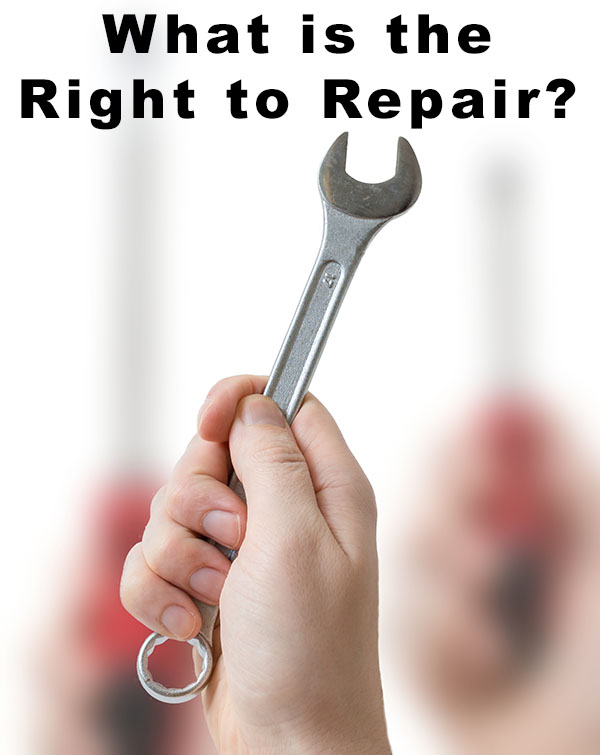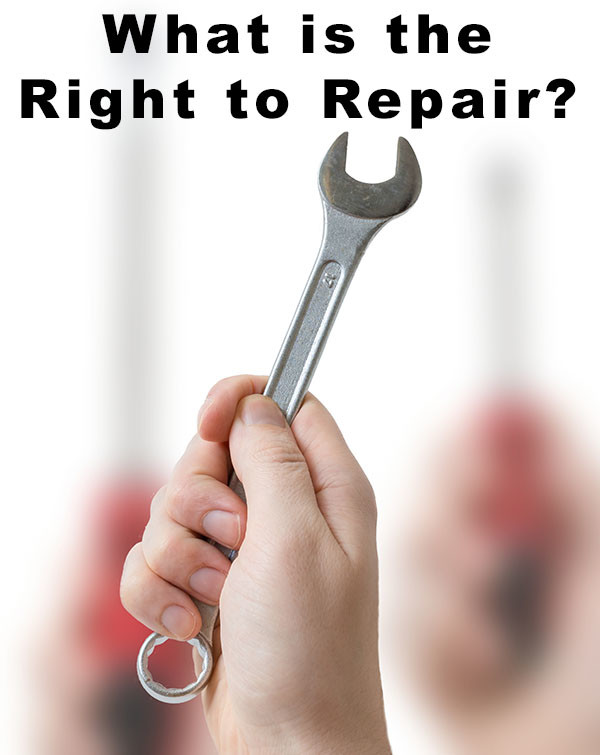Did you know that copyright law might stand between you and your right to repair something that you bought with your money?

An available, efficient repair infrastructure could contribute significantly to a reduced waste stream: why toss and replace when you can fix it, right? Unfortunately, not only have we gotten out of that mindset (because of cheaply available products often made under less-than-ideal conditions), but, in many cases, manufacturers are preventing us from repairing their products when they break.
Related: iFixIt and the Right to Repair
Really? If you’ve paid for a product, don’t you have a right to repair it? Not if that repair would require access to installed software that helps run a product: the Digital Millennium Copyright Act (DMCA) allows manufacturers to keep that intellectual property locked up. So, you may be limited to approved repair shops, or repair may just not be an option.
Neither of these options contributes to an “available, efficient repair infrastructure,” and that generally means more electronics, appliances, and other devices heading to the landfill, or even to recycling before it’s necessary.
The Repair Association, formed in 2013, serves as a lobbying/advocacy group for consumers’ right to repair, and access of all repair professionals to the information necessary to fix products. Executive director Gay Gordon-Byrne told Motherboard that, regardless of the kind of product, the problem boils down to two current realities:
- the DMCA allows manufacturers to “block off” software from everyone but approved repair shops; and
- those same manufacturers refuse to sell replacement parts on the open market: only the approved shops can buy them.
Both of these facts greatly limit competition, which keeps repair prices high. As you might expect, many of us just buy new… and guess who that benefits.
The Repair Association, which is supported by a wide variety of repair-focused organizations, believes that repealing the section of the DMCA that hinders tinkering and repairs, and passing laws requiring open access to parts, would go a long ways towards making repair, whether by consumers or small “mom and pop” shops, a much more viable option.
Tried to repair devices only to run into manufacturer-installed roadblocks? Tossed items that you knew could be repaired, but didn’t think it was worth the effort? Tell us your stories in the comments…
Republished with permission from Sustainablog; Right to Repair image via Shutterstock









